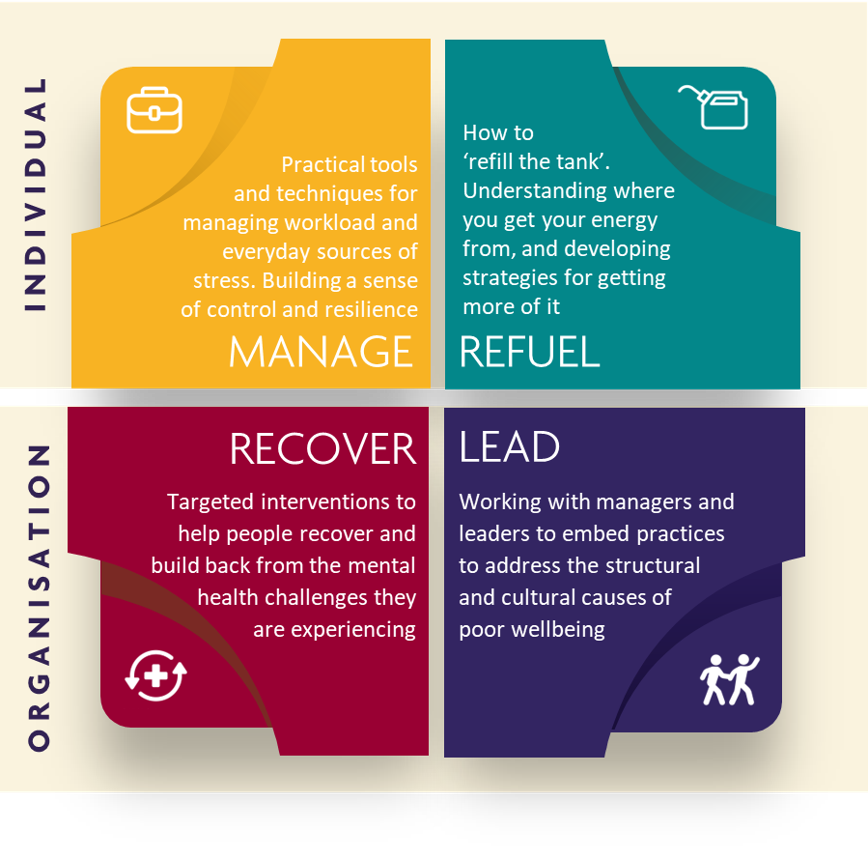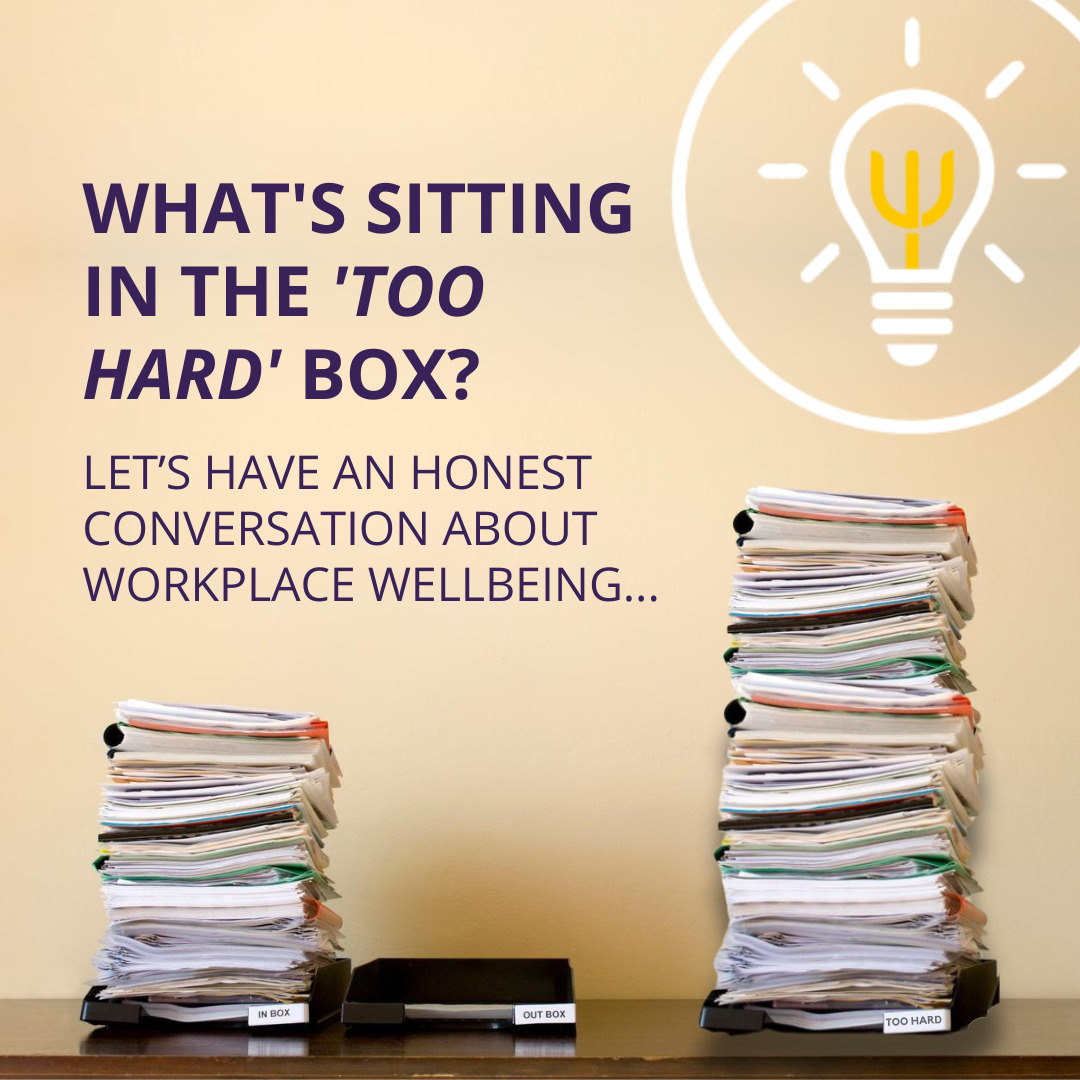Penny for your thoughts: Wellbeing Trends Report
At the recent 2022 Association for Business Psychology (ABP) Conference & Awards we brought along our fabulous pop-up 'Wellbeing Lounge".
Nestled in amongst the comfy chairs, tasty snacks and 'I love Wellbeing' cushions was our Better@Work model. Using this framework, we asked people to share with us their current biggest wellbeing challenge, as well as their number one wellbeing priority for next year.
Over the couple of weeks we’ve locked ourselves away in a darkened room, working through a very (very) substantial pile of colour-coded post-it notes to analyse and identify the key themes across the biggest wellbeing challenges and priorities that were shared with us. The data has been rich and expansive, the insights both fascinating, and at times, unexpected.
A quick snapshot…
Overall, we saw that achieving a 'work-life balance' was both the greatest challenge and the biggest priority for our ABP delegates in 2023. With particular challenges around boundaries. Ways of working, being under resourced, being able to prioritise and make time for thinking also came up.
For priorities, we’ve already mentioned ‘work life balance’. The other broad theme was around supporting and leading others. Both the practical stuff, around supporting and leading our teams virtually, but, also managing the fall out from the current cost of living crisis.
Better@Work.
To make sense of the data, we mapped the information shared with us using the four key themes of the Better@Work model - a deceptively simple, intuitive and easy to use framework to support both wellbeing and performance in the workplace.
Bringing together an understanding of the disciplines of business psychology, stress, performance, resilience, mental toughness, positive psychology, personal effectiveness, organisational culture and leadership - it is a simple but innovative framework for building better business performance through wellbeing. It can be used not only to provide a rigorous framework for assessing existing organisational wellbeing, but also for developing and evolving existing and new wellbeing initiatives.
Manage - The practical tools and techniques needed for managing workload and everyday sources of stress. Building a sense of control and resilience.
Refuel - How to ‘refill the tank’. Understanding where you get your energy from, and developing strategies for getting more of it
Recover - Targeted interventions to help people recover and build back from the health and wellbeing challenges they are experiencing
Lead - Working with managers and leaders to embed practices to address the structural and cultural causes of poor wellbeing
Find out more…
Firstly, dont forget to click the link to read the full report!
Secondly, if you would like to know more about wellbeing and the services Psychology Works offer in this area, please don’t hesitate to contact us.
In the meantime, why not check out some of our other blogs and thought pieces. For real time updates and insights you can also find us on LinkedIn, our social media platform of choice: @PsychologyWorks and @mariagardner
The encore.
Love a report and still wanting more? If so, then why not check out these other client stories, articles and thought pieces on wellbeing….
















